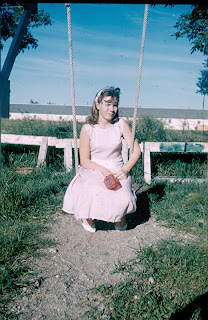Russia's genocidal war on Ukraine is now in its second year. The media is full of stories about the war and I am sure you can find them if you wish. So this post is about some good news for a change, turning a miniature environmental problem into a win-win situation.
Shea Butter is a rich emollient produced from the nuts of the Shea or Karité trees that grow all across the African Sahel. The top shea nut–producing countries are Nigeria, Mali, Burkina Faso, Ghana, Côte d’Ivoire, Benin and Togo. Shea Butter has been called “women’s gold” because it provides employment and income directly and indirectly to some three million women across the continent. Shea butter exports from West Africa garner between $90 million and $200 million a year.Using traditional methods, women, often organized in
cooperatives, harvest Shea fruit. They then crush the nuts inside to extract
the precious butter, which is boiled, cleaned, and sold as raw or unrefined, at
the local markets or exported. They may also sell unprocessed nuts to large commercial
companies which use expellers and solvents to produce a refined product which
is colorless and odorless, and lacks the
natural skin regenerating benefits of unrefined Shea Butter.
Shea
Butter production is roughly 1/3 unrefined, 2/3 refined, with 65% going into
food and beverage (chocolate and confectionary eg Kit Kat and Milky Way), and 30% into cosmetics
and skin care. Ghana is the largest
exporter of unrefined shea butter. The most effective body creams and
lotions will contain at least 20% of Unrefined Shea Butter in their formulas.
After Shea Nuts are roasted, pounded, then boiled, the
solution is manually whipped to coagulate the shea butter. This leaves behind a
solution which is 60% solids. Normally this is just dumped on the ground,
creating a huge mess, though it eventually dries. In the meantime, the women
are buying firewood usually from chopped down Shea Trees to roast and boil the
shea nuts.
So this
year, Wayne, the farmer, logger and fisherman that he was, thought there has to
be a better way. With lots of input from the local women making the Shea
Butter, he and they came up with a process to turn the waste product into fuel.
The women love it as it burns hotter and cleaner than wood. It saves trees. It
cleans up a mess. It requires no fancy equipment.
The
wastewater is dumped into a settling pond where it dries out. The solid waste
is dug out of the settling pond, transported by wheelbarrow to a level piece of
ground and formed into bricks or balls which then dry in the sun. It isn’t
perfect, is labour intensive, and requires a rethink for the rainy season. But
it is an environmental blessing.
I
will post some pictures and videos here to illustrate but for the real
professional explanation see the Baraka Impact blog post here:
WASTE
TO ENERGY: CIRCULAR ECONOMY FUELS SHEA BUTTER PROCESSING
.jpeg) |
| Roasting shea nuts |
.jpeg) |
| the residue bricks burn hot and clean |
Our family use Baraka African black soap which is a mild version of Grandma's lye soap. We love it as it not only gets us clean, if you rub it on really grimy areas like greasy collars before washing, they come out spotless. We also use Kombo Butter rubbed on sore muscles and aching backs or knees which brings long lasting relief. It is now available as a premixed cream in a fancy jar.















.jpg)








